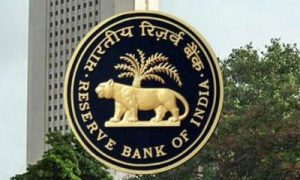New Delhi: If the blistering heat wasn’t enough, now powercuts can make the summer even more unbearable for several parts of India. Amid a deepening crisis in coal shortage, the Delhi government has warned of a possible setback in providing an uninterrupted electricity supply to important establishments in the capital, including Metro trains and hospitals.
Power Minister Satyendar Jain held an emergency meeting to assess the situation and wrote to the Centre requesting it to ensure adequate coal availability to power plants that supply electricity to the national capital. “Due to disruption of power supply from Dadri-II and Unchahar power stations, there may be a problem in 24-hours power supply to many essential institutions, including Delhi Metro and Delhi government hospitals,” a government statement read.
Presently, 25-30 per cent of the electricity demand in Delhi is being met through these power stations, and they face a shortage of coal, Jain said. He said the government was monitoring the situation closely and making every possible effort to ensure that people did not face power outages in some areas of the capital. “These power stations play an important role in preventing blackouts in some parts of Delhi and are also essential to ensure the continuous supply of electricity to Delhi Metro Rail Corporation, hospitals and people in the upcoming summer season,” the minister said.
Read More : Coal Shortage: Some Passenger Trains Cancelled; Power Supply to Delhi Metro, Govt Hosps May Get Hit
According to the daily coal report of the National Power Portal, Dadri-II, Unchahar, Kahalgaon, Farakka and Jhajjar power plants face an acute shortage of coal. This, coupled with the sweltering summer, has triggered blackouts across many parts of the country as states struggle to manage the record demand for electricity.
Besides measures to increase coal supplies to power plants, the Union government has asked states to step up their imports for the next three years to build up inventories. Thermal plants across the country are grappling with coal shortage, indicating a looming power crisis in the country, All India Power Engineers Federation said.
In Jharkhand, daily life got disrupted due to a power outage in Ranchi. “Power availability is not more than 5 hours, our business, daily life has been affected,” says a local who runs a stationery shop. Talking about coal status, PM Prasad, MD-Chairman, Central Coalfields Limited (CCL), said, “We reviewed the production of CCL and Eastern Coalfield Limited (ECL); we (CCL) have been given a target to provide 2.20 lakhs tonnes of coal per day to the power plants. ECL has been asked to provide 75,000 tonnes of coal.” He added, “Currently, we have a coal stock of 6.6 million tonnes, 2 lakh tonnes distributed every day, so our stock will last up to 30 days.”
In the northwest, Rajasthan has scheduled four hours of power cuts for factories, making it at least the third state to disrupt industrial activity to manage surging power demand. “In view of the present power crisis, .. it has been decided to impose scheduled cuts,” a state utility said. Industrial disruption and widespread power cuts are bad news for corporate India, as economic activity has just started to pick up after months of stagnation amid coronavirus lockdowns. and a pickup in economic activity is seen increasing electricity demand at the fastest pace in nearly four decades.
The leap in power demand has left India scrambling for coal, the dominant fuel used in electricity generation in the country. Coal inventories are at the lowest pre-summer levels in at least nine years. Peak-power demand in India surged to a record high on Thursday (April 28), and is seen rising by as much as 8% next month, the power ministry said, as per a Reuters report. India’s weather office has warned of hotter weather in the coming days. A shortage of trains to transport coal is exacerbating a fuel supply crisis. India’s power secretary said this week that train availability was 6% lower than required.
Electricity supply fell short of demand by 1.88 billion units, or 1.6%, during the first 27 days of April, the worst monthly shortfall in over six years, according to a Reuters analysis of data from the federal grid regulator POSOCO. Power cuts in five states, including Rajasthan and Haryana in the north and Andhra Pradesh in the south, were the worst in over six years, the data POSOCO showed.
Read More : Step out at your own risk! IMD issues heatwave warning for country – 10 points
With power cuts showing an increasing trend, April shortages could exceed the large cuts implemented in January 2016 during a previous shortfall in power supply. Gujarat and Andhra Pradesh have restricted industrial activity this month as household air conditioning demand peaked. India last faced a big power crisis in October but the situation this month is far more widespread, with more than half of the country facing more power cuts than in October.



































